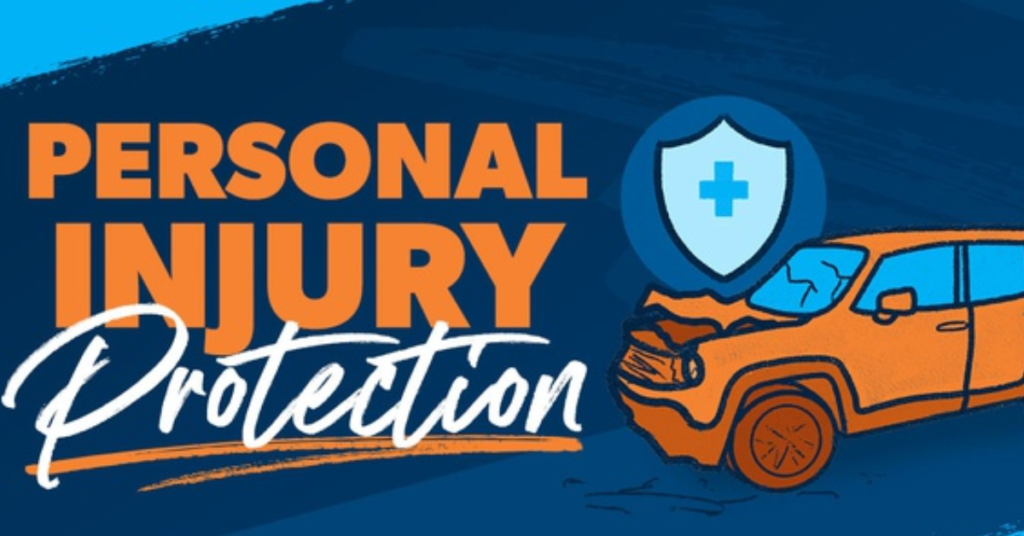When you’re involved in a car accident, one of the most critical concerns is how your injuries will be covered. Car insurance personal injury is an essential part of auto insurance that ensures you’re protected financially in the event of an accident, whether you’re at fault or not. This coverage extends beyond just vehicle repairs, covering medical bills, lost wages, and in some cases, pain and suffering.
In this article, we’ll explore the complexities of car insurance personal injury, explaining how it works, what it covers, and what to expect if you need to make a claim. We’ll also provide clarity on the various types of personal injury coverage, the process of filing a claim, and the key terms and concepts related to this aspect of car insurance.

What Is Car Insurance Personal Injury?
Car insurance personal injury protection (PIP), also known as no-fault insurance in some states, is a type of auto insurance coverage that helps pay for medical expenses and other related costs if you’re injured in a car accident. Unlike liability insurance, which covers the damage you cause to others, personal injury protection covers the medical costs and other financial losses related to your own injuries.
Personal injury coverage can apply regardless of who is at fault for the accident. This is particularly important in no-fault states, where every driver is required to carry PIP insurance to cover their own injuries, no matter whose fault the accident was. In these states, the injured party can use their own PIP insurance to cover medical expenses, lost wages, and other related costs without needing to wait for the at-fault driver’s insurance.
What Does Personal Injury Insurance Cover?
Personal injury protection is designed to offer comprehensive financial support in the aftermath of an accident. Coverage generally includes the following:
- Medical Expenses: PIP helps pay for medical bills resulting from the accident. This includes hospital stays, surgeries, doctor’s visits, ambulance fees, and emergency care.
- Lost Wages: If the injuries you sustained in the accident prevent you from working, PIP can help replace lost income. Depending on the policy, this could cover a portion of your wages for a specific period.
- Rehabilitation Costs: PIP can also cover rehabilitation and therapy costs to help you recover from injuries sustained in the accident. This includes physical therapy and occupational therapy.
- Funeral Expenses: In the unfortunate event that an accident leads to a fatality, PIP may also cover funeral costs.
- Other Expenses: Some policies may also cover additional expenses, such as childcare or household services that you can no longer perform due to the injury.
Personal Injury Protection vs. Medical Payments Coverage
While both Personal Injury Protection and Medical Payments Coverage (MedPay) help cover medical expenses resulting from a car accident, there are key differences:
- PIP Insurance: More comprehensive. In addition to medical expenses, PIP can cover lost wages, rehabilitation, and other costs.
- MedPay: This is typically more limited, covering only medical expenses and sometimes funeral costs. MedPay does not cover lost wages or other non-medical expenses.
In some states, both types of coverage may be offered, and drivers can choose between them, depending on their needs and the laws of their state.
No-Fault States and Personal Injury Protection
In no-fault states, personal injury protection is mandatory for all drivers, and the laws are designed to simplify the claims process. These states require that each driver’s own insurance company covers their medical expenses, regardless of who is at fault for the accident.
No-fault states include:
- Florida
- Michigan
- New Jersey
- New York
- Pennsylvania
- Utah
In these states, if you are involved in an accident, you file a claim with your own insurer to receive compensation for medical bills and other expenses, rather than pursuing a lawsuit against the other driver.
However, no-fault laws don’t mean that there is no option for suing. If you suffer severe injuries or significant financial loss, you may be able to step outside the no-fault system and pursue a personal injury lawsuit against the responsible party, depending on state laws.
How to File a Personal Injury Claim
Filing a personal injury claim through your car insurance can be a straightforward process, but there are essential steps you need to follow:
- Seek Medical Attention: Your health should be the top priority after an accident. Even if you feel fine, seek medical attention immediately, as some injuries may not be visible right away.
- Report the Accident: Notify your insurance company of the accident as soon as possible. Your insurance provider will guide you through the process and provide the necessary paperwork.
- Submit Documentation: You’ll need to submit documentation such as medical bills, wage loss statements, and rehabilitation invoices to support your claim. Keep track of all medical treatments and appointments related to your injury.
- Insurance Review and Decision: After reviewing your claim, the insurance company will either approve or deny the claim based on your policy’s coverage and the nature of the injuries.
- Settlement or Appeal: If your claim is approved, the insurer will pay out based on the coverage limits in your policy. If the claim is denied, you may appeal the decision or seek legal advice to challenge the decision.
What to Do if Your Claim Is Denied
There are several reasons why an insurance claim may be denied. Some common reasons include:
- Lack of Coverage: If you don’t have PIP or MedPay coverage, your insurance policy may not cover your medical expenses.
- Incomplete or Incorrect Documentation: Failing to provide the necessary paperwork, such as medical records or wage loss forms, can result in a denial.
- Pre-existing Conditions: If the insurer believes your injury was pre-existing or unrelated to the accident, they may deny your claim.
If your claim is denied, you have the right to appeal the decision. In many cases, you can resolve the issue by providing additional documentation or clarifying details about the accident. If the denial persists, you may consider pursuing legal action or working with a lawyer specializing in insurance claims.
Legal Implications and Personal Injury Lawsuits
In some cases, even if you live in a no-fault state, the injuries sustained in an accident may be severe enough that you wish to file a lawsuit against the at-fault driver. Personal injury lawsuits allow you to pursue compensation for pain and suffering, medical bills beyond your coverage limits, and other non-economic damages.
However, filing a lawsuit is typically only an option if your injuries meet a certain threshold of severity. This threshold is defined by state laws, and it varies by state. Some states allow lawsuits if the injury results in permanent disfigurement or significant impairment, while others may require more specific conditions.
Key Terms to Know
Understanding the terminology related to car insurance personal injury is vital when navigating claims and coverage options. Some key terms include:
- No-Fault Insurance: A system where each driver’s insurance pays for their own medical expenses, regardless of fault.
- Threshold: The level of injury severity that must be met in order to file a lawsuit in a no-fault state.
- Bodily Injury Liability: Insurance that covers the cost of injuries you cause to another person in an accident.
- Tort: A legal term for civil wrongs that can result in personal injury lawsuits.
Conclusion
Car insurance personal injury protection is a vital part of auto insurance coverage that can help cover medical expenses, lost wages, and other costs following an accident. The benefits and rules surrounding personal injury protection can vary depending on where you live, and understanding your coverage options is key to making sure you’re fully protected. Whether you live in a no-fault state or one where fault is considered in claims, knowing how personal injury protection works, how to file a claim, and when to seek legal recourse can ensure you’re adequately compensated in the event of an accident.


